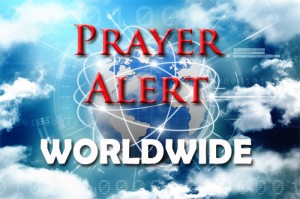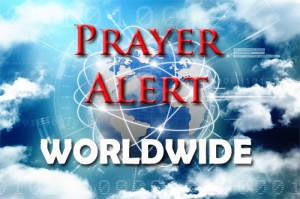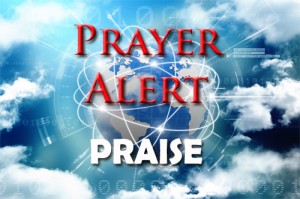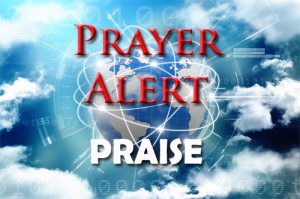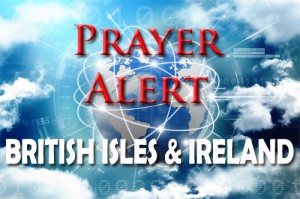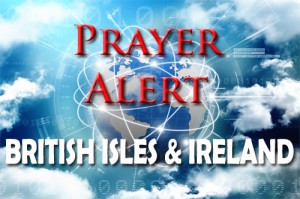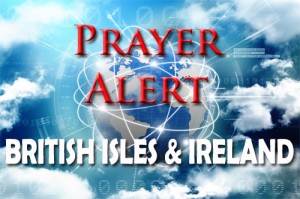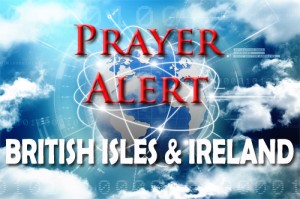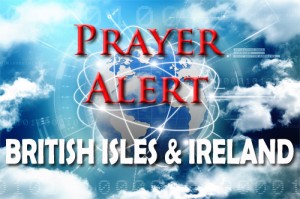
David Fletcher
David Fletcher is Prayer Alert’s Editor.
He is part of a voluntary team who research, proof-read and publish Prayer Alert each week.
If you would like to make a donation towards our running costs, please click here.
Queenslanders will be looking to their parliament to reject a radical abortion bill after it failed to garner the support of a parliamentary committee charged with investigating its merits, according to Australian Christian Lobby Queensland director Wendy Francis. She called on both major parties to stick by their election commitment not to change current abortion laws, in the face of growing community opposition to the proposed bill. Pray for this law to be rejected by all Parliamentarians. Meanwhile, recently in Washington tens of thousands of anti-abortion activists 'marched for life', spurred on by Donald Trump who has vowed to end taxpayer-funded abortion. Pray for babies to be protected when they are most vulnerable, in the womb, and for governments to give dignity and value to unborn children. A huge part of the pro-life movement puts these values into action See:
Christians in a predominantly Muslim region of Central Asia risk almost daily harassment for sharing the Gospel. In Bishkek, Kyrgyzstan, the growth of Islamic extremism helped make 2016 the worst year ever for Christian persecution. Artur (not his real name) said, ‘If you are a Christian living in any of the five former Soviet Republics of Uzbekistan, Kazakhstan, Tajikistan, Kyrgyzstan or Turkmenistan, you are intimidated, harassed, or - worse - jail time, for telling others about their faith. When the authorities discover someone has converted to Christianity, they will gather relatives, friends and family of the accused and bring him or her before an Islamic council of elders. The convert then stands before the group and has to decide between faith or family.’ Twenty-five years after the Soviet Union disappeared and these republics gained their independence, the five 'Stan States' have become repressive and hostile towards people of faith.
On Sunday, Chance the Rapper became the first artist to win a Grammy award without selling physical copies of his music - or selling much of his music at all. He won three Grammys (best new artist, best rap album and best rap performance), defeating the likes of Kanye West, Drake and DJ Khaled. Later, he was joined by Kirk Franklin and other singers for a performance of Colouring Book's ‘How Great’ and ‘All We Got’. They were accompanied by a huge gospel choir who helped them end the triumphant night in true Sunday worship fashion. ‘Ya better stand up right now and stop playing, I'm worshipping my God. He's powerful, merciful, worthy’, Chance declared while he and Franklin went back and forth praising God at the mainstream awards ceremony. Earlier in the evening, he said, ‘I want to thank God for my mother and my father, who supported me since I was young, for Kirsten, for Kensli, for all of Chicago, and I want to thank God for putting amazing people in my life.’ The 23-year-old rapper from Chicago releases his songs online without charge.
A note was left on a vending machine at a cancer hospital in Manchester asking people to help themselves to free treats. Staff at The Christie found the anonymous note on Sunday on a machine where the tray had been left full of paid-for snacks. The donor said they hoped the ‘random act of kindness’ would ‘brighten up someone's day’, and ended by saying ‘Finally, if you can, try and spread the kindness.’ Nurse Emma Widdowson said: ‘It made me feel so happy I was beaming all day. Who doesn't want chocolate on a Sunday?’ Healthcare assistant Lauren Hunstone said: ‘It just perked up everyone's day that someone would do something so lovely out of the goodness of their own heart, not wanting to take any sort of thanks.’ The Christie was recently praised by health inspectors for providing ‘exceptional’ care and being a ‘leader in its field’. It is the largest single-site cancer centre in Europe, treating more than 44,000 patients a year.
Acts 3:1-10: Peter and John could not bypass need. They had been called by Jesus Christ and filled by his Spirit. Moved with compassion for the beggar, they gave what they had. They had Jesus. They boldly stepped out in faith in Jesus’ name. In the face of need, is knowing Jesus the motivation for all we are doing, and are we confident to share him with others?
(written by Fred Drummond, Evangelical Alliance)
‘Thy Kingdom Come’ is a global prayer movement, which invites Christians around the world to pray between Ascension and Pentecost for more people to come to know Jesus Christ. What started out as an invitation from the Archbishops’ of Canterbury and York in 2016 to the Church of England has grown into an international and ecumenical call to prayer. The hope is that: 1) people will commit to pray with God’s worldwide family - as a church, individually or as a family; 2) churches will hold prayer events, such as 24-7 prayer, prayer stations and prayer walks, across the UK and in other parts of the world; 3) people will be empowered through prayer by the Holy Spirit, finding new confidence to be witnesses for Jesus Christ. See Justin Welby’s video invitation on
Research by the Joseph Rowntree Foundation (JRF) has revealed that two years ago 19 million people in the UK, nearly one in three, were living on less than the Minimum Income Standard (MIS). The problem is that household costs are rising, while incomes have stagnated. The Government has already said it is taking action to raise incomes, after Theresa May identified those ‘just about managing’. The MIS is based on what members of the public think is a reasonable income to live on. A single person renting a flat outside London is said to need to earn at least £17,300 a year to reach the MIS, and for a working couple with two children, living in social housing, each of the individuals need to earn £18,900 a year. The figures include six million children - 45% of all children in Britain. There are also 1.8 million pensioners, 14.6% of the age group. The figures are up from 15 million, or 25% of the population, six years previously. The report warns that many families which are just about managing are in danger of falling into poverty. That is despite record levels of employment.
The Archbishop of Canterbury is ‘saddened and shocked’ by the Government’s decision to take only 350 unaccompanied refugee children. He said last week, ‘We believed that the Government was committed to welcoming up to 3,000 children. To end the scheme now, when such a small proportion have actually entered the country, is regrettable.’ The immigration minister, Robert Goodwill, has stated that after consultation with local authorities, the UK will take just 350 children, including more than 200 already transferred from France. The Labour MP Yvette Cooper described the move as ‘shameful’, while the Conservative MP Helen Whateley said that Kent was already looking after more than a thousand unaccompanied asylum-seeking children. MPs have challenged the Government’s assertion that local authorities cannot take more children, and suggested that other groups (including faith organisations) could help. Archbishop Welby urged the Government to reconsider, saying, ‘We must resist and turn back the worrying trends of seeing the movement of desperate people as more of a threat to identity and security than an opportunity to do our duty. We cannot withdraw from our long and proud history of helping the most vulnerable.’
Members of the Church of England's ruling body have voted not to ‘take note’ of a controversial report on homosexuality and same-sex marriage. The report by the House of Bishops (see Prayer Alert 05-2017, dated 3 February) called for a ‘culture of welcome and support’ for gay Christians, but maintained that marriage in church should be only between a man and a woman, and services should not be held to bless same-sex relationships. Following hours of debate, the House of Bishops voted overwhelmingly (43 to 1) in favour of the report, and the House of Laity backed it by 106 votes to 83. But the report had to win backing in all three houses, and the Clergy rejected it by 100 votes to 93, with two abstentions. Bishops will now have to produce a new report on the issue. The decision was welcomed by LGBT rights campaigners, some of whom had staged a protest ahead of the debate. Lucy Gorman, an activist and Synod member from York, said: ‘Thank you Synod. With that vote we've sent a message to the outside world.’ The Archbishop of Canterbury, Justin Welby, concluded the debate with a call for ‘a radical new Christian inclusion’.
During the election campaign for a new Northern Ireland assembly, Sinn Féin has renewed its commitment to same-sex marriage. Promising to work to legislate for marriage equality, party members Gerry Kelly, Caral Ni Chuilin and Megan Fearon said there is a growing demand for a change in the law. Sinn Féin and other parties have previously tried to force through new laws to lift the ban on gay marriage in the Stormont assembly, but these moves have been blocked by opposition mainly from the Democratic Unionist Party. Ms Fearon, an assembly candidate for Newry and Armagh, said she has friends in Dundalk who can marry the person they love, but those who live just a few miles north of the Irish border cannot. She added: ‘So we are pledging to work actively for equality as we have always done. We want all parties who say they are progressive to state clearly what they will do for the LGBT community.’ In 2015 the assembly voted narrowly in favour of gay marriage equality, but the DUP vetoed any change in the law. Northern Ireland remains the only part of the UK where gay couples cannot get married legally.

